Naples Botanical Garden, Naples, Florida
Naples Botanical Garden is located just three miles south of downtown
Naples, Florida, on 170 acres populated with tropical flora and culture.
Brazilian, Asian, Caribbean, and Floridian . . . it’s all here. There’s also
a children’s garden, a butterfly tunnel, a cafe, and unending delight along
every path.
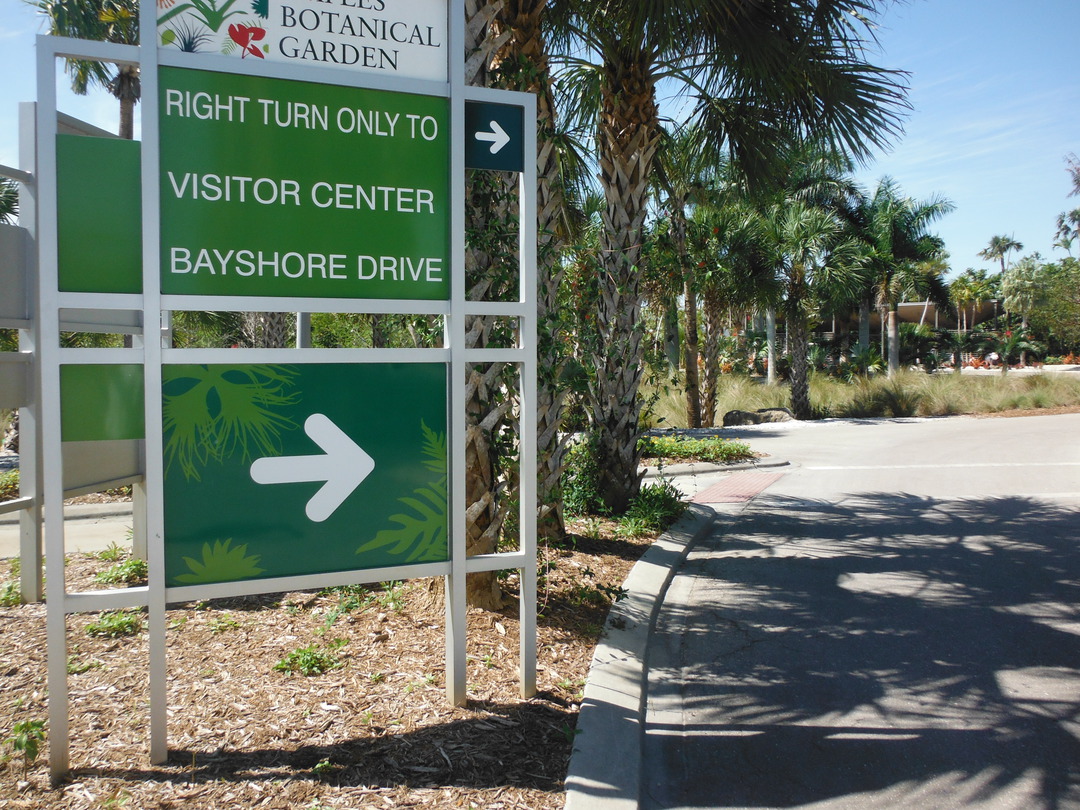
Naples Botanical Garden is located at 4820 Bayshore Drive at the corner of
Bayshore and Thomasson Drives. US 41 is the main road to this venue. The
Garden is also only a short ride from the Southwest Florida International
Airport in Ft. Myers. There is plenty of parking, but the lot fills up.
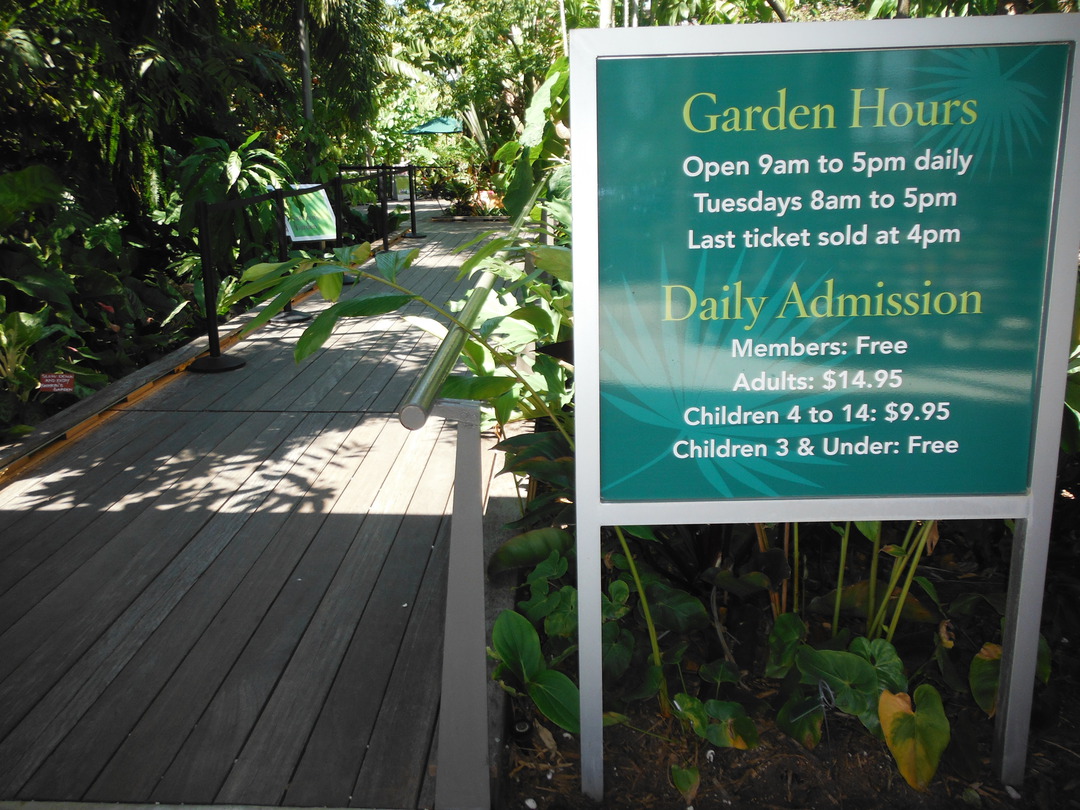
Naples Botanical Garden begins just a few steps from here. The Garden has a
plan-your-visit page at naplesgarden.org with important notes. Tickets are
good for one entry only (no in-and-out), copious amounts of food and drink
are not permitted, and that the venue will close in the event of lightning.
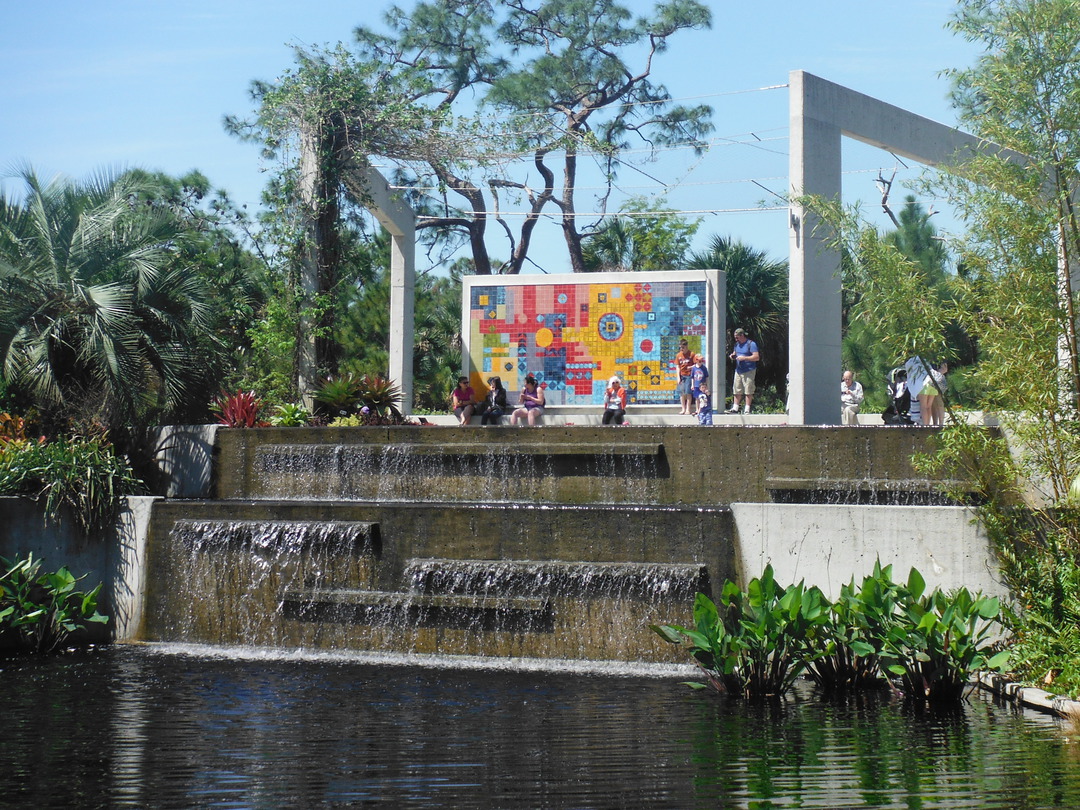
This is the Burle Marx Plaza in the Kathleen & Scott Kapnick Brazilian
Garden. Visitors can see this area from the ticketing window, and is a fun
first place to go. This area has many South American plants, including
palms. The garden was designed by Raymond Jungles of Miami.
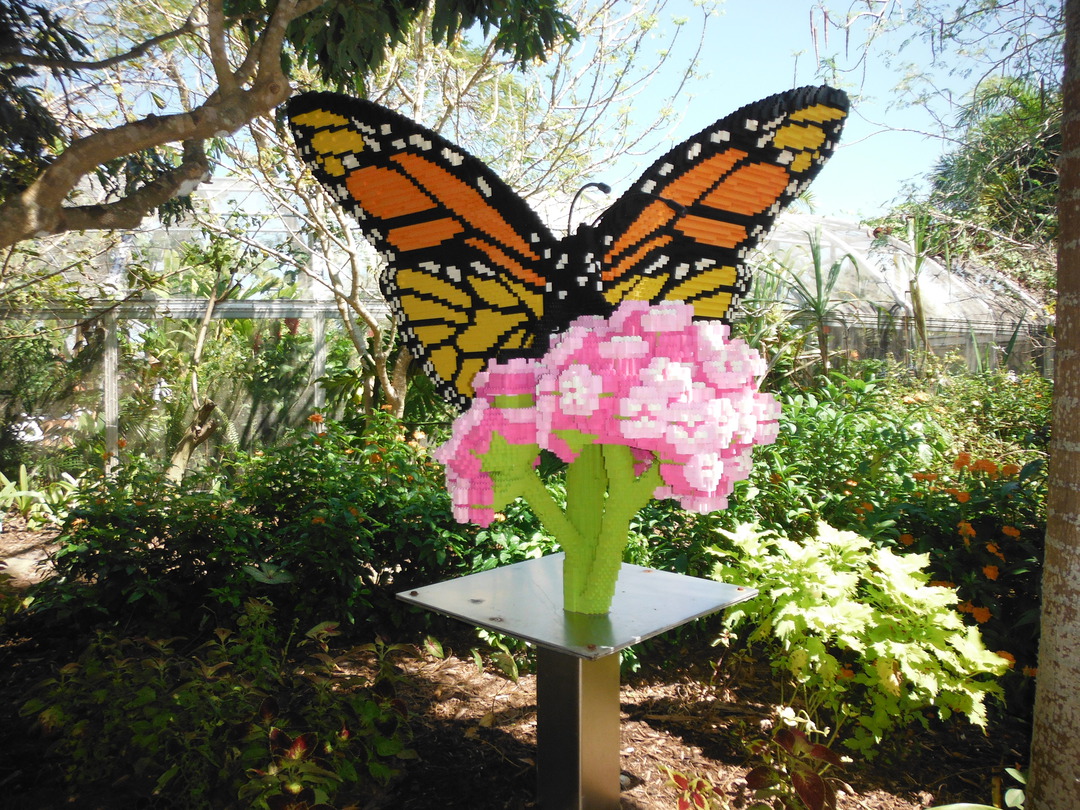
This is the number one reason to bring the whole family to this Garden. This
monarch butterfly is made from more than 60,000 Lego bricks and was built by
New York-based Lego artist Sean Kenney. This image was taken on March 22,
2016, and the exhibit would run through April 10th.
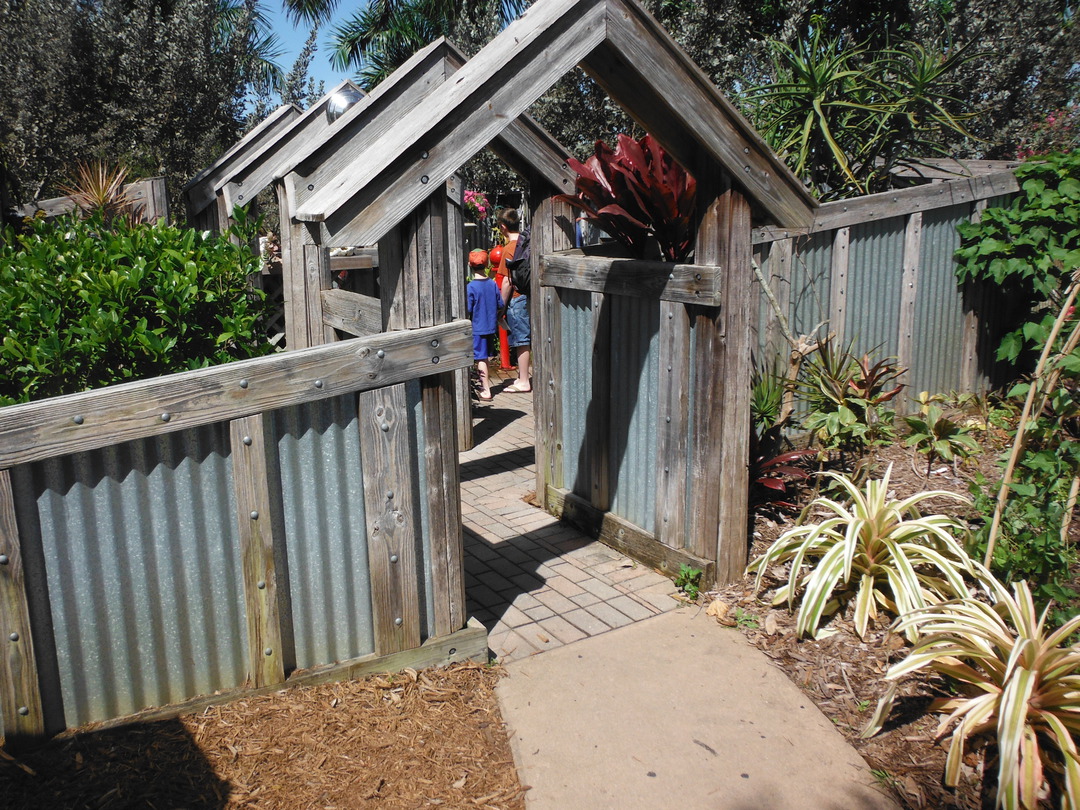
This is the Vicky C. and David Byron Smith Children’s Garden, and it has a
butterfly tunnel. (Solo adults with a single-day ticket might be advised to
visit this area at another time due to the expanse of the other
attractions.) Kids and grownups both love it here; there is just so much to
see.
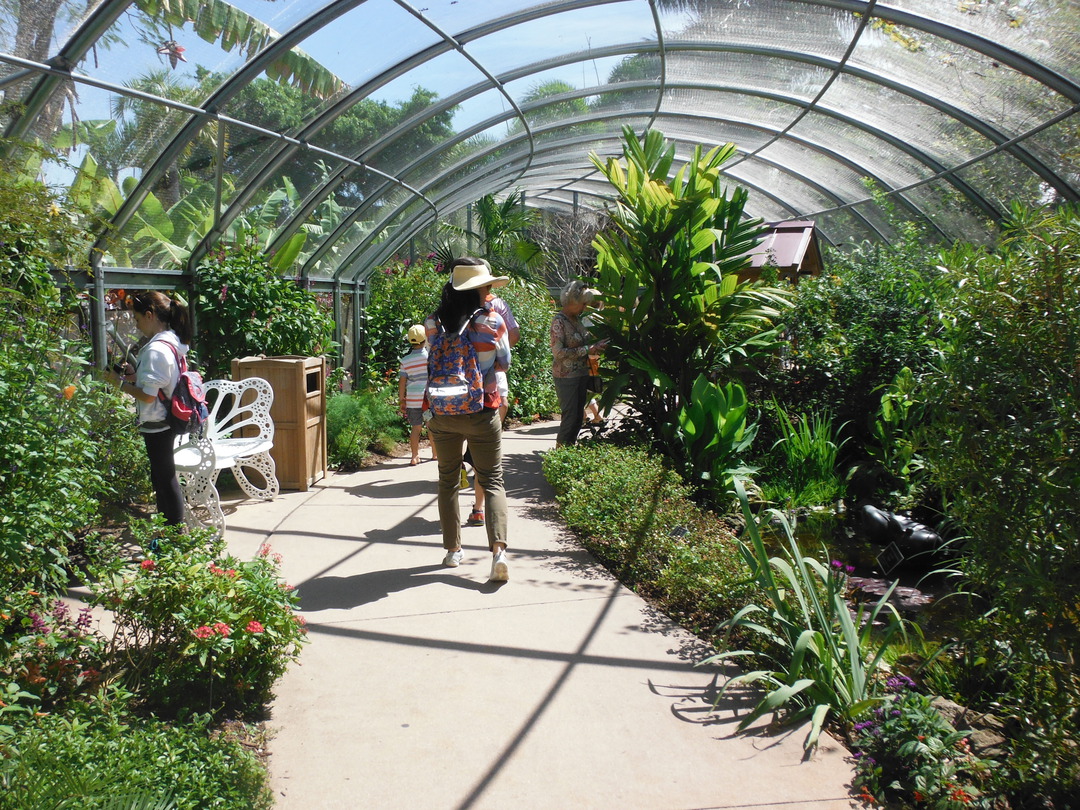
This is the Butterfly Tunnel in the Children’s Garden; there are an
unbelievable number of butterflies who will actually land on an unsuspecting
shoulder or two. As a result, visitors should inspect themselves carefully
before leaving this area. There are sally ports for this.
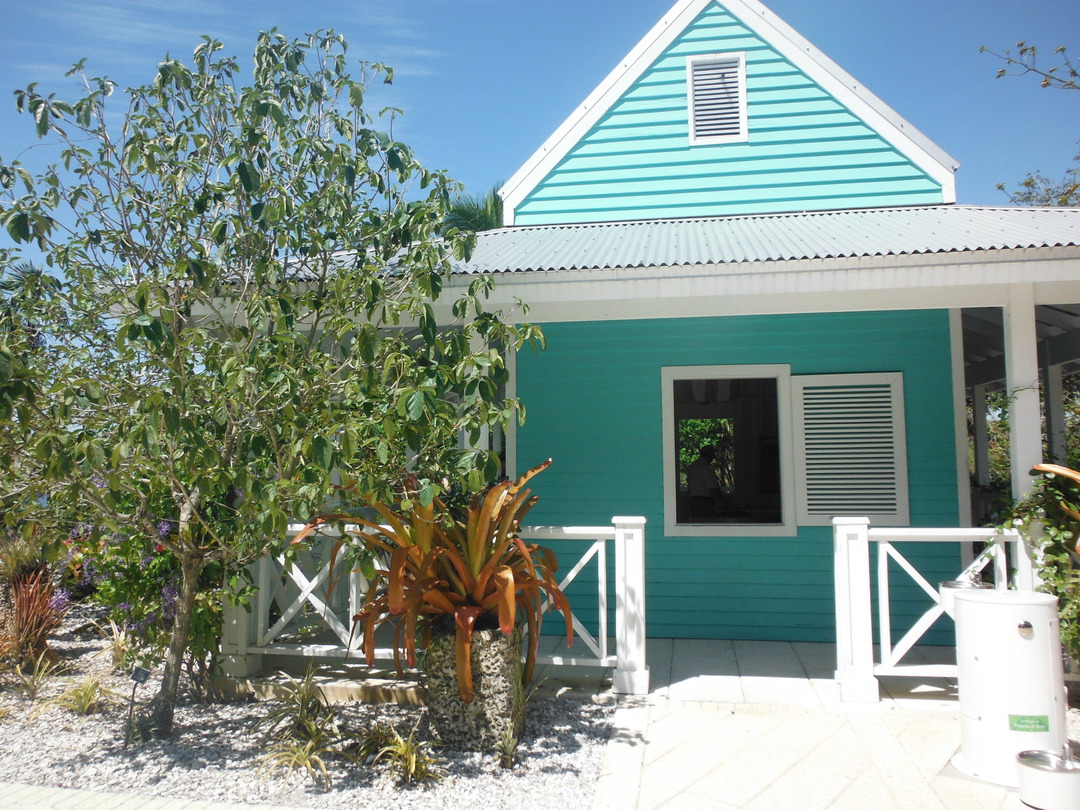
This is the Chattel House in the Caribbean Garden, and there is a drinking fountain here, among other things. It is a cool, comfortable place to stop and sit and learn about the cultural history of the Caribbean. There is a steel drum and a swinging bench (plus Legos to assemble during this visit).
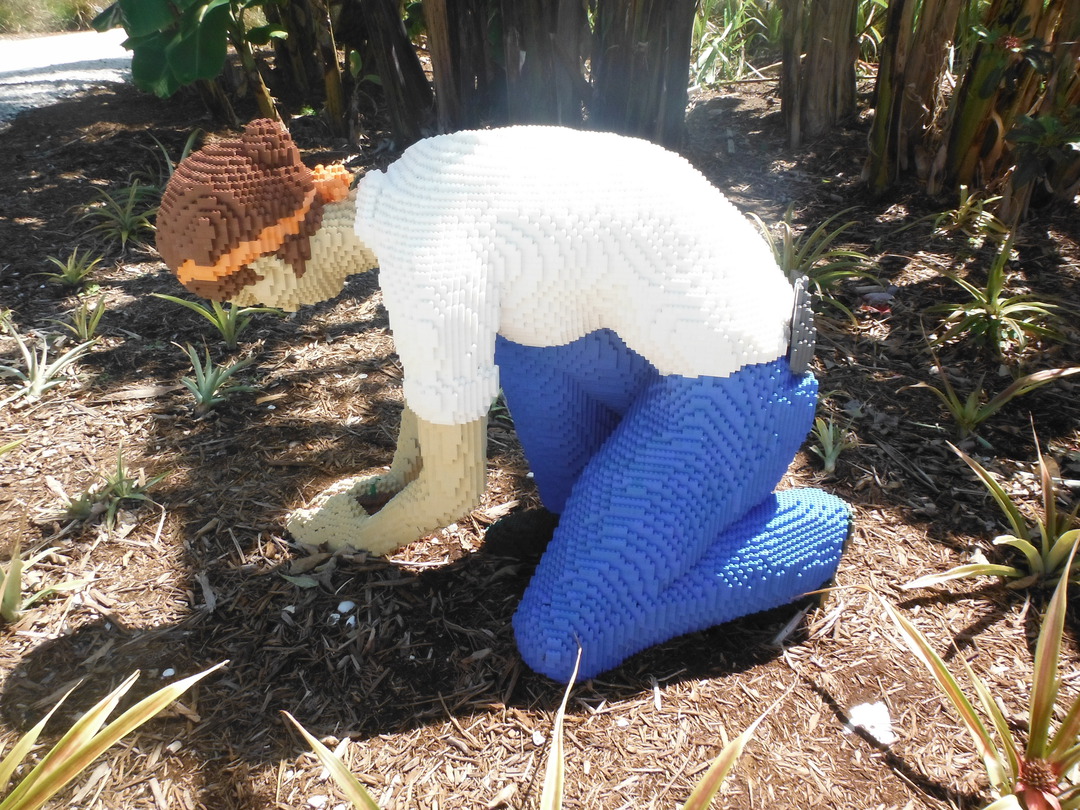
This is the “Kneeling Gardener” sculpture in the Caribbean Garden. This
sculpture is part of the Nature Connects: Art with Lego Bricks trademarked
exhibit. Each sculpture has a sign with details, such as how many bricks
were used. In this case, it was 34,340.
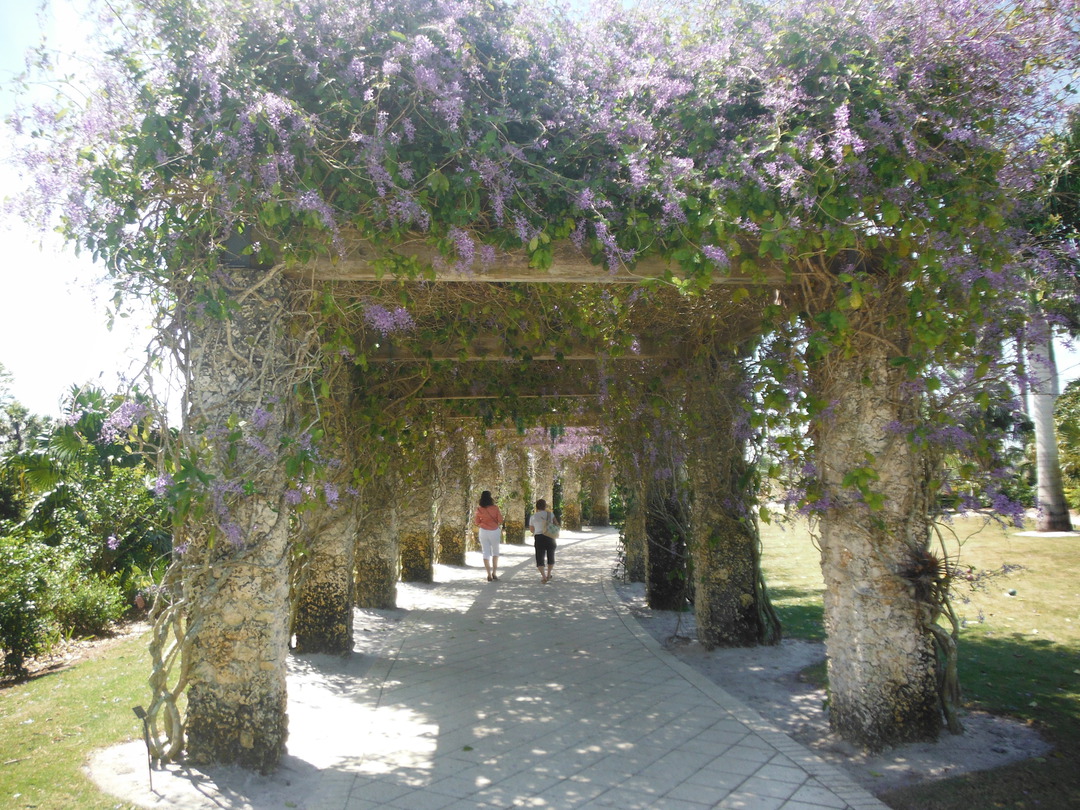
It is impossible to cover the entirety of Naples Botanical Garden in a
single visit. (Though it is fun to try.) This magnificent structure is
created with a plant called the Queen’s Wreath (petrea volubilis,
Verbenaceae) from the West Indies. Queen’s Wreath takes the sun off the neck
as good as any roof.
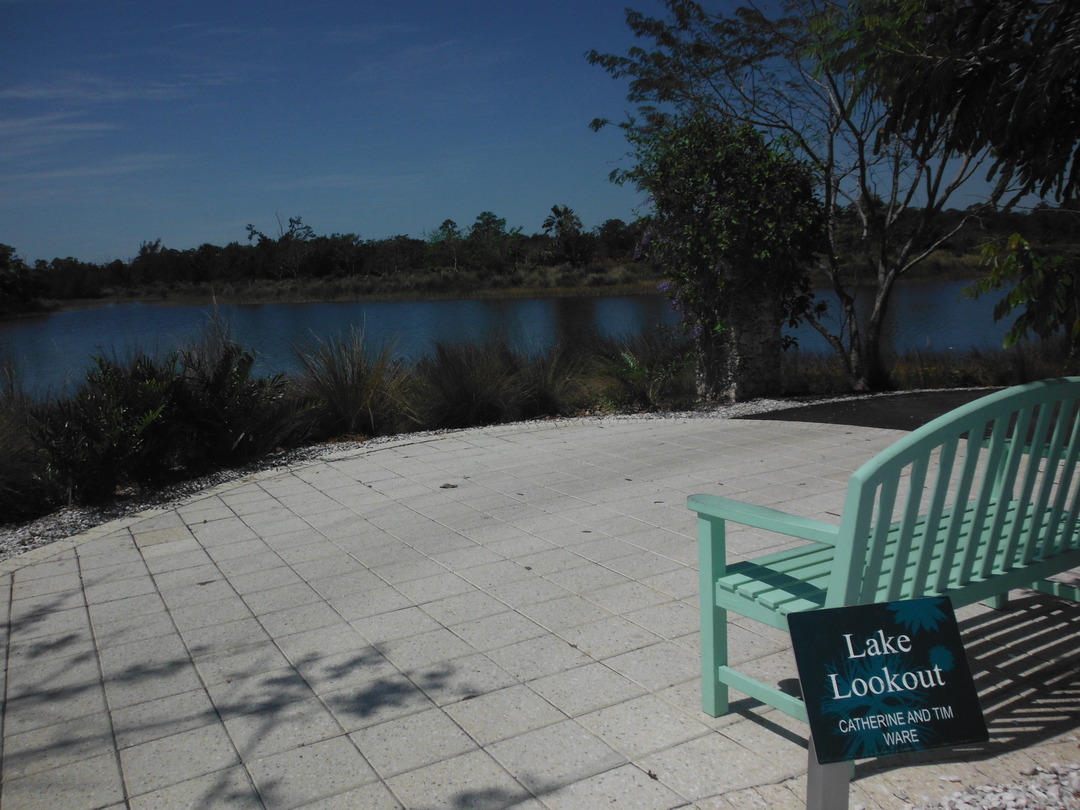
Naples Botanical Garden is only an hour away from the Everglades National
Park, so it’s only natural that there are alligators in this lake, Lake
Tupke. The Garden asks that visitors not bother them or feed them, but
visitors are welcome to bring cameras to photograph one—if one surfaces.
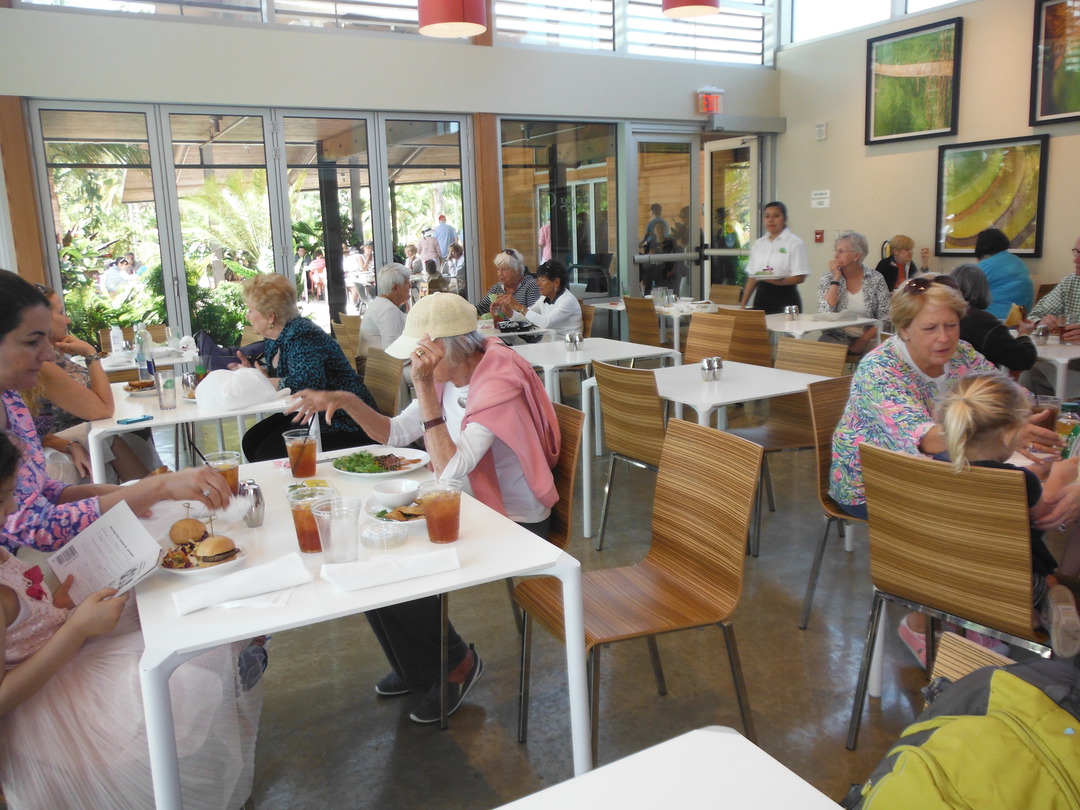
If the alligators find their lunch at Lake Tupke, two-legged visitors will
find theirs at Fogg Cafe. Fogg Cafe is open from 9 am-5 pm for breakfast and
lunch with a menu that changes seasonally. Beer and wine are available.
Diners order their food from the cashier (not shown) and a waitperson
delivers it to the table.
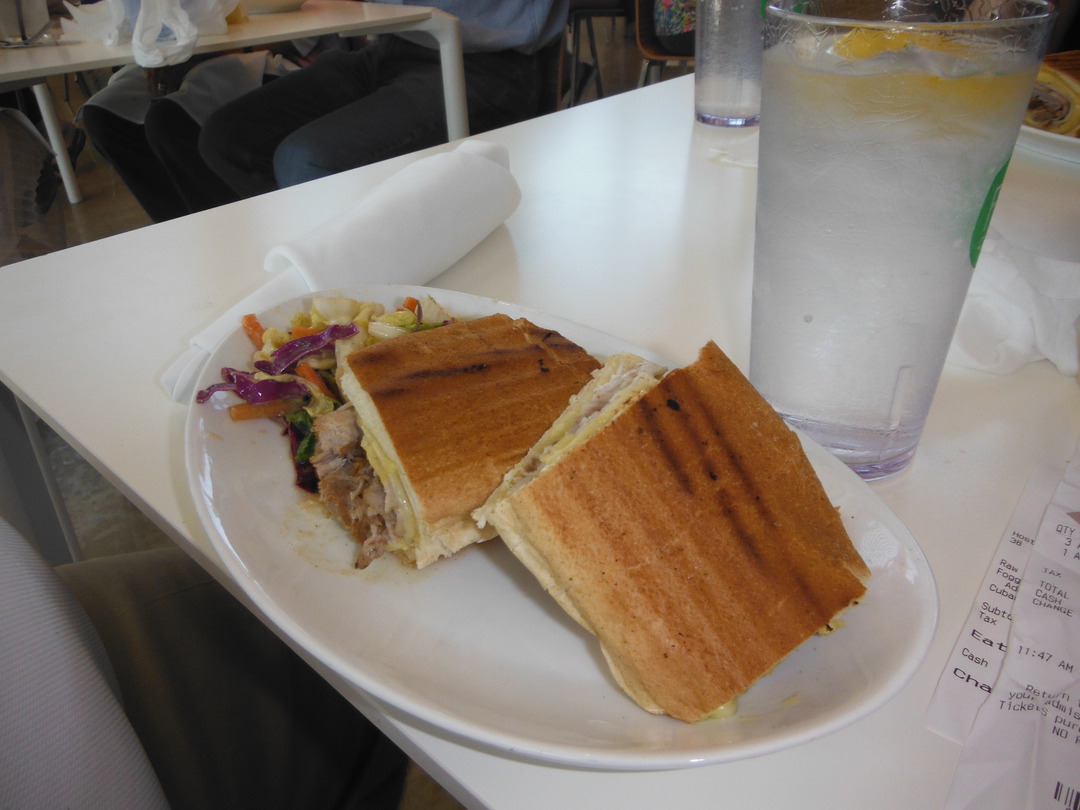
This cubans-and-carnitas plate at Fogg Cafe was $13. It came with pickled
mango, pickles, mustard and mayo. Also delicious was the raw vegetable wrap
with goat cheese at $10. Sodas are $3.

These are the Fogg burgers . . . ground sirloin and short rib. The dressing
on the little salad had hints of citrus and mango. This plate was $13. Fries
are available, hand-cut with ketchup and herb, for $7. The server had our
food to us in about 15 minutes; we ate between 1:30-2 pm.
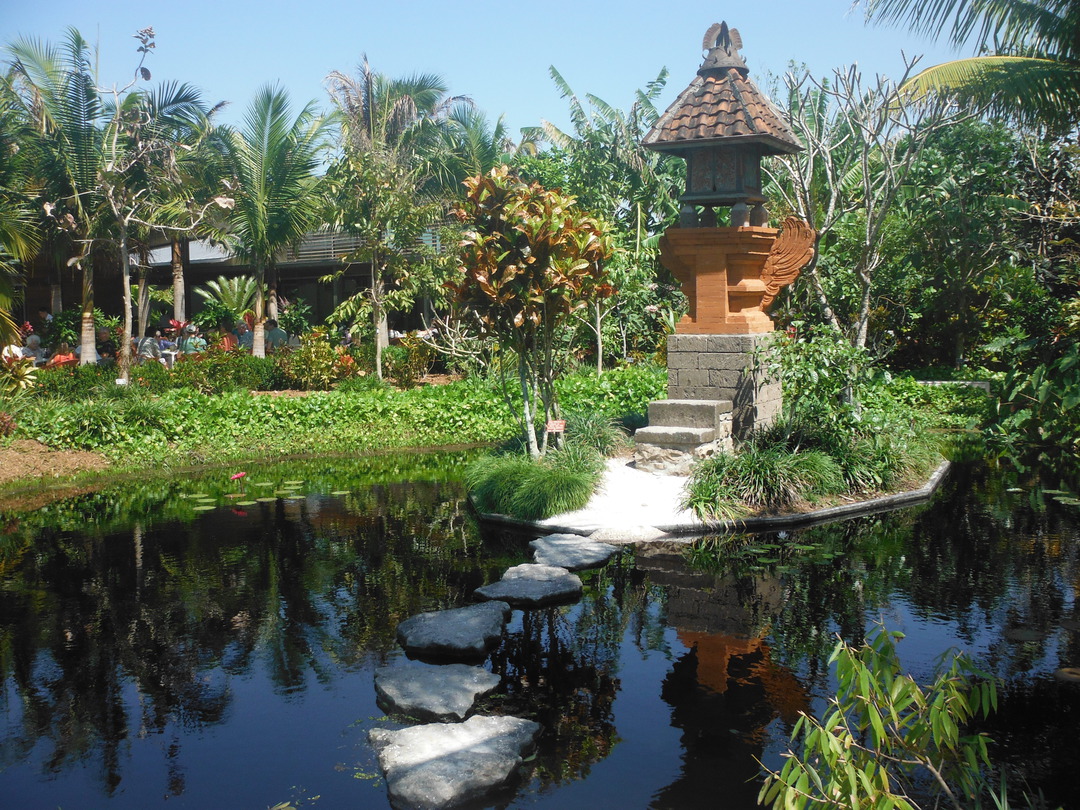
This Balinese temple, set to honor the goddess of rice and fertility, can be
found in the Marcia and L. Bates Lea Asian Garden. Visitors are welcome to
navigate the stepping stones. Both ornamental and edible tropical Asian
plants are here. There are places to stop and rest throughout this garden,
which was designed by Made Wijaya.
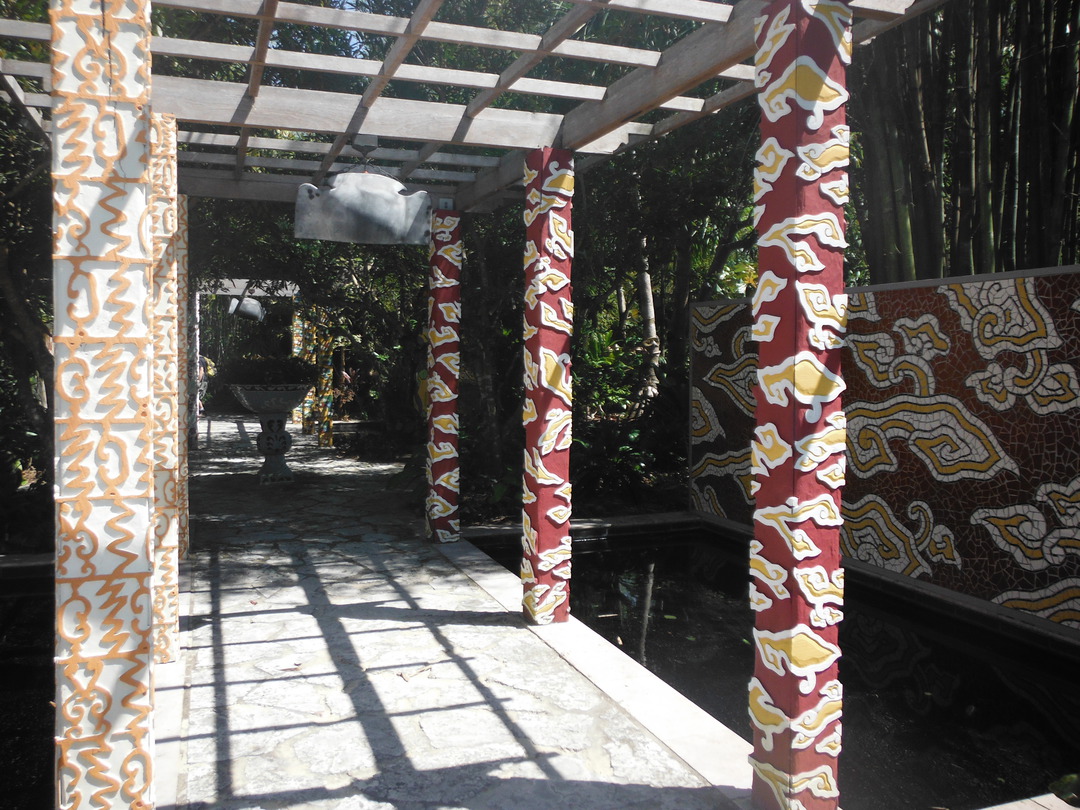
These mosaics and carvings are in the Asian Garden. Typical of NBG, there
are so many interesting spaces that perhaps two or three days are necessary
to see everything. Every step brings a new delight. The Thai pavilion and
the Temple Ruin are two more interesting spots to be.
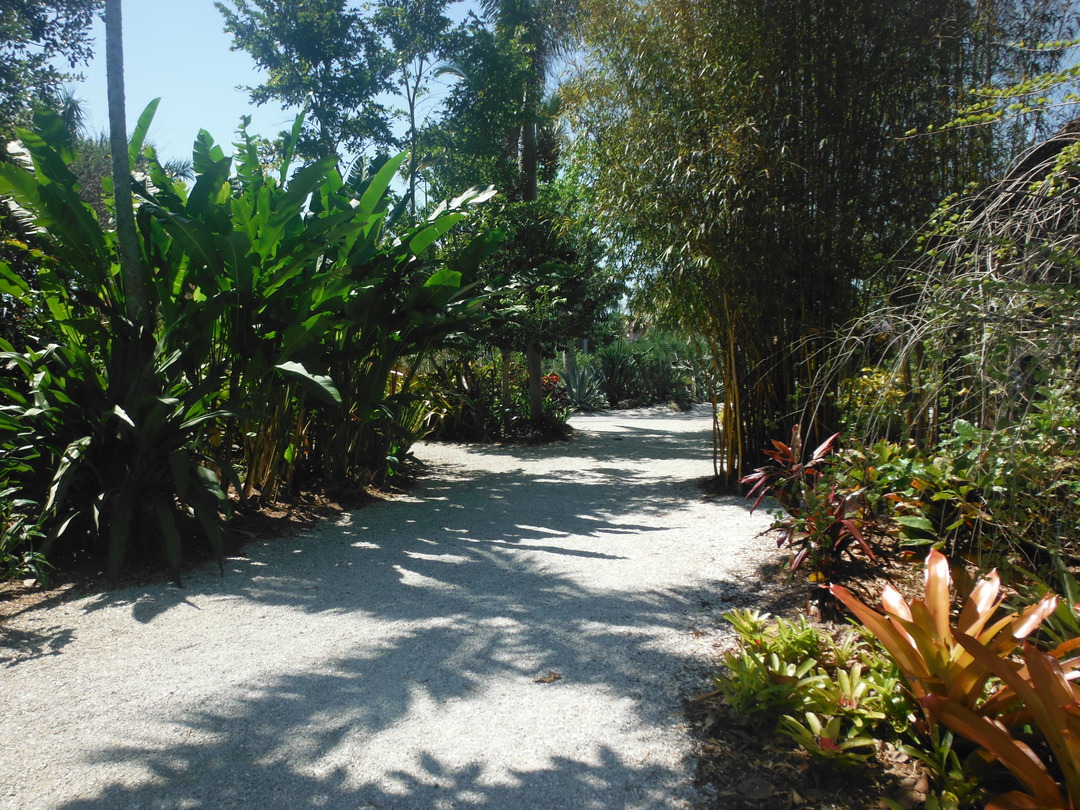
This pathway leads from the Asian Garden to the Florida Garden with its River of Grass, the South Grove with its Labyrinth, or through the Pinelands to the Birding Tower on Deep Lake. May both your feet and your camera battery last as long as your day at Naples Botanical Garden, where every trail is connected to the next.